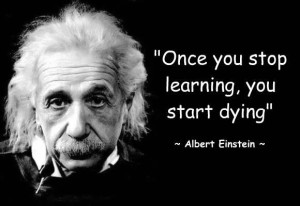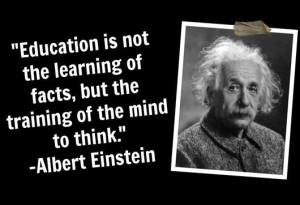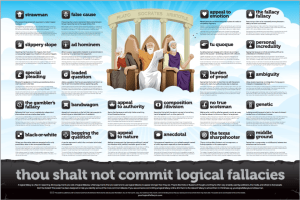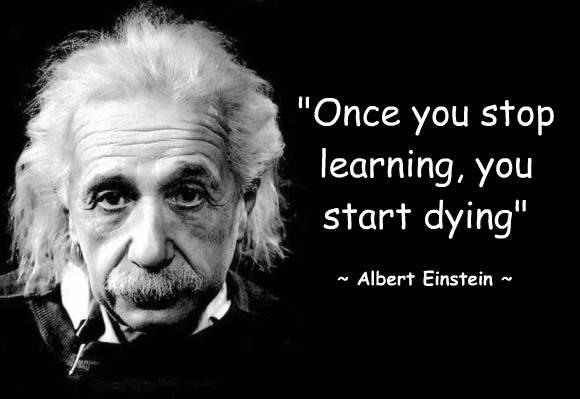 It’s a Sunday morning in early March, 2015, and I’m sitting in a huge lecture auditorium with 30 dental colleagues at the Spear Education Center in Scottsdale, AZ, learning about advancements in digital dentistry, CAD/CAM, occlusion, and esthetics. Not only is it a Sunday morning, I’m paying a fair amount of money to do this, I have to take a red-eye flight home tonight, land at 6am Monday morning, drive straight to the office, and work all day. Missing my wife and daughter, sleeping in a hotel, and all that jazz.
It’s a Sunday morning in early March, 2015, and I’m sitting in a huge lecture auditorium with 30 dental colleagues at the Spear Education Center in Scottsdale, AZ, learning about advancements in digital dentistry, CAD/CAM, occlusion, and esthetics. Not only is it a Sunday morning, I’m paying a fair amount of money to do this, I have to take a red-eye flight home tonight, land at 6am Monday morning, drive straight to the office, and work all day. Missing my wife and daughter, sleeping in a hotel, and all that jazz.
And you know what? I LOVE IT!
Love Learning, and Life is Never Boring
A lthough it’s been nearly 17 years since completing my formal education experience upon graduating from dental school (UNC-Chapel Hill School of Dentistry ’98), I still remember how exhausted I was with learning. 20 consecutive years of formal education can do that to you. For the first few years after school, then, I really had no interest in learning much more. Of course, having graduated from one of the best dental schools in the country, I thought that I’d learned most everything I needed to know to be a great dentist. Fortunately, it only took a couple years to be firmly disabused of that notion! And as I continue to mature (I don’t ever plan on really “growing up” LOL), I find that learning only becomes MORE of a passion, not less, and I find this quote by Albert Einstein perfectly appropriate.
lthough it’s been nearly 17 years since completing my formal education experience upon graduating from dental school (UNC-Chapel Hill School of Dentistry ’98), I still remember how exhausted I was with learning. 20 consecutive years of formal education can do that to you. For the first few years after school, then, I really had no interest in learning much more. Of course, having graduated from one of the best dental schools in the country, I thought that I’d learned most everything I needed to know to be a great dentist. Fortunately, it only took a couple years to be firmly disabused of that notion! And as I continue to mature (I don’t ever plan on really “growing up” LOL), I find that learning only becomes MORE of a passion, not less, and I find this quote by Albert Einstein perfectly appropriate.
Where Our Educational System is Missing the Boat
Bear in mind, I am not a teacher and have only done a couple lectures in my life. Not only that, I am a HUGE fan of teachers and am deeply grieved by how poorly they are valued and compensated for the incredibly important work that they do. I find it incomprehensible that sports figures and celebrities are paid in the millions, while the individuals to whom we entrust our children every day, every year until they are adults (usually) are often paid less than $30-40K/year to start, and even experienced teachers with advanced degrees often struggle to earn above $75K. What does that say about our values as a nation and populace? Please keep this firmly in mind as I make this point about what I perceive as a fundamental error in our current educational system: it is directed against the system, not against the people who must make it function every day with little or no control over it.
 After reading Daniel Kahneman’s book Thinking, Fast & Slow, which I reviewed in 2014 here, this other quote from Albert Einstein suddenly took on a far greater meaning. Here’s a quote from my review that I think sums up my position well:
After reading Daniel Kahneman’s book Thinking, Fast & Slow, which I reviewed in 2014 here, this other quote from Albert Einstein suddenly took on a far greater meaning. Here’s a quote from my review that I think sums up my position well:
I mean, without trying to brag, I’m a pretty smart guy. Double-major in both biology and German undergrad, then graduate-level degree; bilingual; created 5 websites on 4 different platforms; played multiple musical instruments, dance and sing; photographer, blogger, voracious reader; perform a wide variety of dental procedures at a very high level of proficiency; and more. IOW – I’m no dummy, but I felt dumber while reading this book than at any other time in the last 20 years! Over and over again, Kahneman presents scenarios that seem fairly simple and straightforward, and then shows you exactly why the “most logical” answer is flat-out WRONG. And after you read his explanations, it’s obvious! By mid-way through the book, though, I was getting a little frustrated – whenever another scenario was presented, it was clear Kahneman was about to provide another such example, but even knowing that it was probably a set-up to make a point…..I STILL got them wrong!
My point being, as the 21st Century progresses, and our world becomes ever more driven by technology, data, and science, it is ever more important that humanity learn HOW to think, not simply learn the old classic “3 R’s: Reading, Writing, and Arithmetic.”
Logical Fallacies and the Dunning-Kruger Effect
In the last year or so, I’ve become increasingly involved in what is generally called Skepticism. This is, in its most simple terms, a movement defined by its demand for evidence to support any belief. IOW, it is a movement for logic, reason, accurate thinking, quality research, and a willingness to question and abandon any belief that lacks evidence.
 While not part of the definition of the movement, one component of the thinking processes associated with skepticism is the awareness of logical fallacies or errors in reasoning and debate. Being aware of these errors is important to ensure that debate is honest and accurate, which should ideally lead to the most correct choices and beliefs, while shedding anything that doesn’t meet the standards. What I learned from reading Kahneman’s book is just how incredibly prone we human beings are to engage in such fallacies, and usually with no idea that we have done so. Being unaware of such fallacies in our thinking often leads to a greater-than-justified confidence in our own intelligence and knowledge. This phenomenon has been studied and is now named the Dunning-Kruger effect. As you can read in my own quote above, I was shocked to learn how easily I fell prey to this effect despite my level of education, IQ, and even my own awareness of the fallacies.
While not part of the definition of the movement, one component of the thinking processes associated with skepticism is the awareness of logical fallacies or errors in reasoning and debate. Being aware of these errors is important to ensure that debate is honest and accurate, which should ideally lead to the most correct choices and beliefs, while shedding anything that doesn’t meet the standards. What I learned from reading Kahneman’s book is just how incredibly prone we human beings are to engage in such fallacies, and usually with no idea that we have done so. Being unaware of such fallacies in our thinking often leads to a greater-than-justified confidence in our own intelligence and knowledge. This phenomenon has been studied and is now named the Dunning-Kruger effect. As you can read in my own quote above, I was shocked to learn how easily I fell prey to this effect despite my level of education, IQ, and even my own awareness of the fallacies.
Learning is FUN!
Sure, if you wanted to do so, I could take such examples of my own errors and be discouraged about how much any of us can ever truly know. Heck, much smarter and more educated people than I am have made huge errors that have actually been published and believed by many smart and educated people, only to have a major flaw in analysis pointed out that required a full retraction and new analysis. For those with less education, how are they to even know how little they know? I’ll admit to occasionally being deeply frustrated and discouraged myself.
On the flip side, one can see such errors as motivation and a challenge to keep learning, to gain deeper and greater understanding of any given problem(s). That is the route I choose. It’s the reason that I routinely take 75-150 hours of advanced dental Continuing Education every year, despite the fact that it takes me away from my family and costs us anywhere from $15-20,000 per year in tuition, flights, hotels, meals, etc. And that’s just for my profession! Beyond that, I read voraciously on topics such as theology, cosmology, philosophy, Zen, neuroscience, martial arts, and more. And the more I learn, the more I want to learn – it’s addictive. 🙂 Along those lines, here’s an article I found recently that can add a lot to the discussion: How and Why to Become a Lifelong Learner. It’s written in a men’s magazine, but everything in it obviously applies to women, too.
Ah well, I could go on a lot longer on the subject, but this has become much longer than I thought, so I’ll stop here for now. But I would love to know, what do YOU love to learn?
